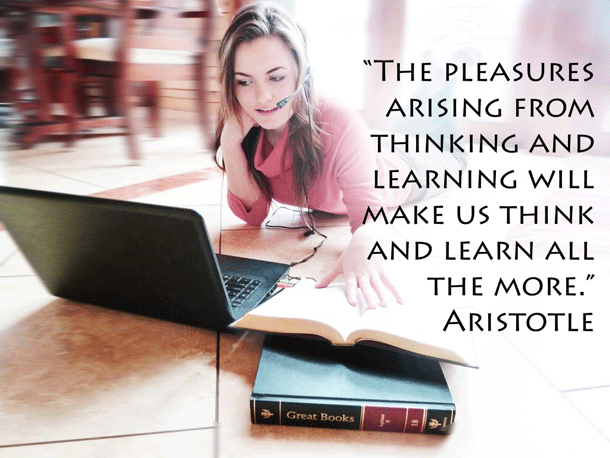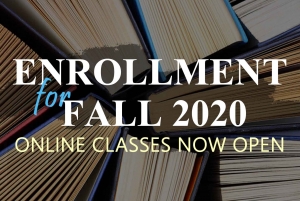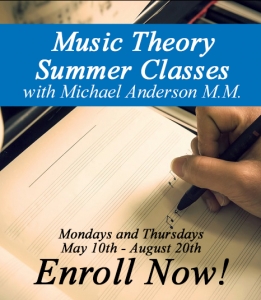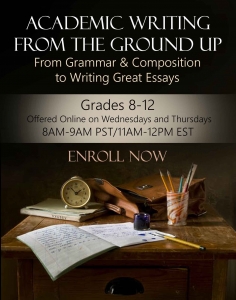 The Great Books Program is a purely distance education program with only minimal technical support staff needed to assist its professors who tutor our weekly, online, live-audio (i.e., not recorded, no delayed “chat” rooms) classes from their homes or offices around the country. This dramatically reduces costs thus enabling more students to attend and complete these Great Books courses who would otherwise not be able to do so.
The Great Books Program is a purely distance education program with only minimal technical support staff needed to assist its professors who tutor our weekly, online, live-audio (i.e., not recorded, no delayed “chat” rooms) classes from their homes or offices around the country. This dramatically reduces costs thus enabling more students to attend and complete these Great Books courses who would otherwise not be able to do so.
CLICK HERE TO ENROLL IN THE GREAT BOOKS PROGRAM
Our method of teaching by conversationally discussing questions and answers in a spirit of mutual inquiry and discovery dates back to Socrates and is at the heart of the Great Books and classical traditions. It leads students to develop and practice the liberal arts of listening, speaking, reading and writing as well as the habits of reflective, critical thinking. In this environment students begin to develop their thoughts and insights with care and confidence and learn how to express those ideas in the naturally delightful and liberating experience of genuine learning. In this way students gain understanding of their own natures and the nature of the world in which we all live. This makes for a better, examined and thoughtful life, a point on which all the sages who wrote the great books agree.
Many years ago – from the Middle Ages to modern times – the Bachelor of Arts (BA) degree signified completion of the secondary level of education (following the elementary or primary level) and so readiness to enter into the third level of formal education – the university, for specialization in one’s chosen field. With that background in mind, Dr. Mortimer J. Adler wrote:
“If I had any hope that in the foreseeable future, the educational system of this country could be so radically transformed that the basic liberal training would be adequately accomplished in the secondary
[i.e., high] schools and that the Bachelor of Arts degree would then be awarded at the termination of such schooling, I would gladly recommend that the college be relieved of any further responsibility for training in the liberal arts… if we are going to have general human schooling in this country, it has to be accomplished in the first twelve years of compulsory schooling…it would be appropriate to award a bachelor of arts degree at the completion of such basic schooling. Doing so would return that degree to its original educational significance as certifying competence in the liberal arts, which are the arts or skills of learning in all fields of subject matter.”
“This is Dr Simon K., the father of one of the former students of Great Books Academy. His name is Golpak K. We were in Marshall Islands when he was enrolled in your home schooled program for Grade 9 and 10.He completed his year 10 in 2008. He opted to go to normal school so he applied and was accepted to do preliminary year at university of South Pacific Majuro Campus (Marshalls) in 2009.In 2010 we had to go back to Papua New Guinea. He applied for and was accepted into science foundation and then proceeded on to enroll for his MD programme. His is now doing his final year (5th yera) in Medicine and will be passing out as MD towards the end of 2014. I would like to thank the Great Books Academy for your excellent programme in helping my son the to excel in his academic life. He will be completing his MD a few days shy of his 21st Birthday and will be the youngest ever to grade from medicine from University of Papua New Guinea(UPNG). Once again we thanks you very much. Sincerely, Dr Simon K. Papua New Guinea
Nobel Prize-winning economist Gary Becker (University of Chicago) made much the same point about the importance of early education when he noted the effect of the lack thereof in the bottom 20 percent of the income distribution in the United States in which too many children are not learning the skills and adopting the habits and values that other children acquire. One result is increasing inequality. For example, prior to 1950 college graduates earned about 40 percent more than high school graduates, on the average. Today they earn 80 percent more. Thus education prior to college admittance age (roughly age 18) is increasingly important in our society.
When is it too late to make up for deficient early education? Becker says studies show that by age 16 government job-training programs for 16-year-olds do not succeed because they cannot overcome the failure to learn skills in the first 16 years. Dr. Adler noted that the responsibilities and financial pressures of college costs, adulthood and marriage effectively end the availability of sufficient leisure time necessary for general, liberal educational opportunities for most college-age students, in favor narrow specialized, vocational education.
Can government schools solve the problem by providing education and skills that traditionally have been provided by parents? Becker, citing various studies, concludes there is no evidence that will work. What about replacing real mothers with professional day care personnel? Sweden tried this on a grand scale (a literal, Spartan-like nationalization of the family) at great social cost, but produced no evidence of positive effects on children. Early home education, completed at the secondary level with general liberal education in the humanities, offers the surest – now well-tested – solution to the current educational crisis. As schools in general do not offer such an education at the secondary level, home educators must find ways to provide this for their students.
In a 1970 appearance on the TV show Firing Line, hosted by William F. Buckley, Jr, Dr. Adler made the same point that liberal education, the backbone of which is study of the Great Books (not student-selected electives), should be completed by the end of secondary (high) school:
“I think the curriculum for liberal studies should be completely fixed. There should be no electives at all. I do not think the student is in any position to make choices about what he should study. I do not think his interests make any difference. They are all human beings; they are all going to become citizens; they are all going to have lots of free time. I think electives – the choice of specialization – should come after the liberal arts degree.
I think the liberal arts degree is given four years too late. I would take American schooling and cut it down , and make it European in this sense: six years of elementary schooling; six years of secondary (lycee, gymnasium – high school); the collegiate (i.e., the BA [Bachelor of Arts]) degree coming at the end of that [i.e., at the conclusion of secondary education – 12th grade in the US]…I might extend that by taking [into account] the differences in the population: I might have the very brightest twelve years [i.e., through 12th grade] ; for the next level thirteen years; and the last, fourteen years, but not more than fourteen.”
Adler wrote in his autobiography, although younger than the College students, “the high school students did just as well [in the University of Chicago Great Books Program]; in fact, having had less schooling, they were less inhibited in discussion.” I’d say that it was not that we’d had less schooling but that we’d had U-High (high school at the U. of Chicago-run University high school – in other words they were prepared) schooling, which encouraged independent questioning and expression. -George McElroy, (BA’38, MA’39, graduated from U-High in 1934)
Taking Dr. Adler’s words and personal encouragement to heart, in 2000 AD we developed Great Books Programs for students high school and college age and up. The Great Books Program allows willing students to gain a broad, liberal (i.e. from liber or libertas – liberty, or freeing from ignorance) education in the humanities through the study of the great books while in high school or college, via distance education.
“Reading the Great Books had done more for my mind than all the rest of the academic pursuits…it is the best education for the faculty as well as for the students; the use of original texts is an antidote for survey courses and fifth-rate textbooks; and it constitutes by itself, if properly conducted, the backbone of a liberal education.” – Dr. Mortimer J. Adler
“If you’re in the GB program right now, cherish this time! I really believe that you will never have another class quite as good as this one. Even though I have some very excellent teachers at …..college (which everyone should come to, by the way lol)… none of them will be able to compare to what Mr. Bertucci, Dr. Taylor, Dr. Redpath and Dr. Hancock have given me, the ability to think and ask questions. I know it seems like a fairly common thing to have, but frankly, it is grossly underdeveloped in many people. Just know how lucky you all are to have this, and I hope you all enjoy every moment of it as much as I did.” – comment on Facebook by one of our Great Books Students





